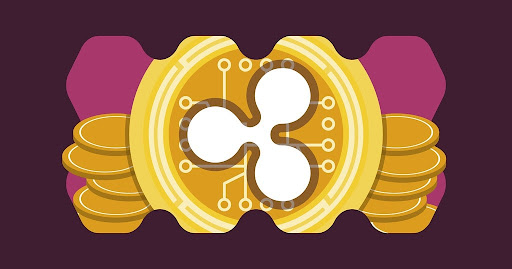Ripple (XRP) is one of the most controversial cryptocurrencies on the planet.
Rather than moving far away from traditional finance, as in the case of Bitcoin, XRP uses blockchain technology to strengthen existing financial frameworks.
XRP is a cryptocurrency for banks and other larger financial institutions. This is the antithesis of Bitcoin, but it’s not necessarily a criticism.
Banks are always looking for ways to improve their existing mechanisms and Ripple enables institutions like Santander, Axis Bank and Yes Bank to convert to XRP and effortlessly move funds around the world. It significantly boosts transaction speeds and cuts down on costs.
Be that as it may, however, XRP has one glaring concern amongst staunch crypto investors. Get ready — we’re about to use the C-word. XRP is somewhat centralized by their parent organization Ripple Labs. *Gasp*
This is what makes XRP a deeply polarizing project in the crypto community Like the last season of Game of Thrones you either hate it or love it.
Although XRP has an impressive network of institutional partners, it also might be the ticket to an Orwellian centralized world. So, here’s the good, bad and ugly regarding the most contentious project in crypto.
What is XRP Exactly?
Launched in 2013, XRP is a highly successful cryptocurrency created by Ripple Labs programmers Jed McCaleb and Chris Larsen.
XRP’s primary goal is to become the plumbing of the financial world. Today, XRP works with the biggest commercial banks on the planet, including Bank of America, Santander and PNC.
Additionally, XRP enables insanely efficient cross-border remittances for foreign accounts.

When it comes to real-world use cases, XRP is the closest thing you’ll find to an actual currency-cryptocurrency. Banks for instance can use XRP to transfer massive amounts of liquidity.
Ripple’s token can handle 1,500 transactions per second. For context, BTC can only sustain a pitiful 10 transactions per second and Ethereum 15 tps. If scalability is the name of the game, which it is, then XRP dominates it.
XRP Continues the Good Fight
“Ripple was designed from the very beginning to essentially be a replacement for SWIFT [a leading money transfer network] or to otherwise replace the settlement layer between major financial institutions,” says Pat White, CEO of Bitwave.
XRP stayed under one penny for most of its life before exploding in 2018. Despite undergoing a brutal investigation by the Securities and Exchange Commission, it remains one of the top 10 coins by market cap.
In fact, XRP landed more partnerships than it lost during its lawsuit. *Mind blown*
Santander, Bank of America and American Express all use XRP to expedite cross-border payment transfers.
Important Update: SEC Vs. XRP
In a nutshell, the SEC took XRP to court in December 2020 arguing that the cryptocurrency is a security, not a commodity.
This has implications for the entire market. To understand them, however, you should first know the difference between securities and commodities.
Securities: Represent ownership in a publicly traded corporation. The expectations of profit are driven by the actions of a third party (i.e. Tesla, Amazon, Google)
Commodities: Assets, property or goods that can be bought or sold on an exchange (i.e. Gold, Crude Oil, Bitcoin). These assets have much less regulation than securities.
The SEC was created after the Great Depression to protect investors from fraud or scams. Conversely, the SEC has accrued a negative opinion amongst some investors — Elon Musk and much of the crypto community being such critics.
Essentially the SEC contended that XRP isn’t a cryptocurrency in the sense we’ve come to understand it.
They contend XRP isn’t open, permissionless and decentralized, but is instead centralized by Ripple; therefore investors are dependent on Ripple for XRP to have any value at all. By that definition, it would be a security, not a commodity.
Although XRP was demolished in value during the lawsuit, falling more than half in price, things are looking much brighter for the project nowadays.
Problems with Centralization
XRP does have some centralization concerns. Namely, XRP uses a default list of 35 validators of which are determined based on trust. It’s very anti-crypto, but works nonetheless.
We’d be remiss not to also point out that the majority of the XRP token supply and nodes belong to Ripple.
It’s slightly worrisome. This makes comparing decentralized projects like Bitcoin or Ethereum to XRP very difficult. They each try to accomplish different objectives.

How XRP Created Stellar Lumens (XLM)
As a quick aside, XRP co-founder Jed McCaleb went on to create Stellar Lumens (XLM) after being fired from his original creation.
XLM isn’t technically a hard fork of XRP, but it is very similar.
It’s a superfast, scalable project that implements ideas that McCaleb couldn’t use for XRP.
The key difference is that Stellar Lumens is geared towards average people like you and me, and not primarily for big banks. Additionally, much like Cardano, XLM wants to bring banking services to third-world countries.
To this day XLM remains one of XRP’s biggest competitors.
Bottom Line
XRP is pragmatic in every sense of the word.
The philosophical underpinning for XRP is to mix decentralization with centralization; in doing so, it doesn’t scare off big banks the same way that Bitcoin does with 100% decentralization.
All of this certainly makes some crypto investors shiver, while others understand that it could be a more realistic goal than what Bitcoin is looking to accomplish.
“Where Ripple is today with payments is analogue to where Amazon was (then) with books.” – Brad Garlinghouse, CEO at Ripple.
Moreover, XRP may start off as digital cash for banks and financial institutions, but could quickly infect the world as a faster, more scalable cryptocurrency standard.
Owning XRP is like owning a slice of the banks. Is that a good thing? Time will tell. But it’s not going away anytime soon.
